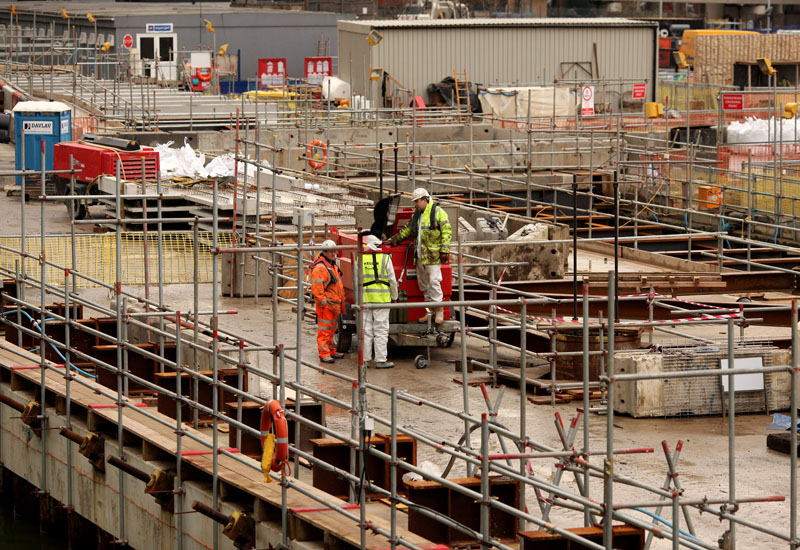Manufacturers and other private sector operators on Tuesday painted a gloomy picture of how the foreign exchange restriction placed on 41 items by the Central Bank of Nigeria had affected operations in the business sector.
They said that since the restriction order was placed last year, about 272 firms had been forced out of business, 50 of which were manufacturing companies.
While some of the affected manufacturers have relocated to neighbouring countries, according to Manufacturers Association of Nigeria, at least 222 small-scale businesses have closed shops, leading to 180,000 job losses.
As a result of the negative impact of the policy on the operations of manufacturers, stakeholders in the economy including MAN, the National Association of Small and Medium Enterprises and the Lagos Chamber of Commerce and Industry insisted that the policy must be reviewed.
They spoke at the launch of a report on the manufacturing sector by NOI Polls Limited, in collaboration with the Centre for the Studies of Economies of Africa.
The Director, Economics and Statistics, MAN, Mr. Ambrose Oruche, lamented the unavailability of productive inputs, stating that this was the major challenge confronting manufacturers.
He attributed the problem largely to the ban by the CBN on certain items from acessing the official window of the forex market, adding that the current operating environment was too harsh for many manufacturers to continue to operate.
He wondered why the CBN and the Federal Government kept coming out with what he described as conflicting polices, noting that this was affecting the growth of the manufacturing sector.
He said, “Presently, about 50 manufacturers have closed shop, while some have downsized. Some manufacturers are still producing due to their love for this country. Government’s policy on cement should have been adopted in this case.
“In the case of cement, Nigeria used to be a net importer of cement, but the government set up a policy over a five-year period, which made it possible that today, we are a net exporter of the commodity.”
Oruche said the fact that the economy was technically in recession should have made the CBN to redirect its policies towards stimulating the economy rather than tightening money supply.
He also listed high interest rates, poor power supply, policy inconsistency, poor patronage of locally manufactured products, poor supporting infrastructure, among others, as the challenges confronting manufacturers.
In his remarks, the Director, Research and Advocacy, LCCI, Mr. Vincent Nwani, said the CBN announced the ban on the 41 items without consulting other stakeholders in the sector.
He said, “We did press releases; we did stakeholders engagement; we engaged with the CBN at all levels, at least three times; we met the directors twice up to the CBN governor on this same matter of the 41 items- giving them examples of product-by-product.
“There must be an urgent review of the CBN’s policy on the restriction of access to foreign exchange placed on 41 items, as about 16 of the total items on the list serve as critical raw materials for intermediate goods produced in Nigeria, especially as the country lacks the capacity for optimal production of the items.”
For instance, he said that the ban on oil palm alone had led to a loss of about 100,000 jobs over the last couple of months, while the ban on glass and glassware resulted in 80,000 job losses mainly in the pharmaceutical industry.
Nwani said many companies in the pharmaceutical sector now found it difficult to package their products.
He said, “Local production of oil palm is put at about 600 metric tonnes annually, but the total demand in the country is put at about 1.8 million metric tonnes.
“Today, Presco Oil has orders of up to December 2017 to fill, it is presently hard pressed with demands. Listing oil palms among the restricted items meant that we have a shortfall of about 1.2 million metric tonnes.
“Some of the items placed on the restriction list by the CBN should be reinstated until the country develops the capacity to produce them locally. Some of the items need a period of between three and seven years for the country to develop self-sufficiency in their production.”
Nwani said, currently, about $10bn of manufacturers’ funds were stuck in foreign countries because the owners had no confidence in the economy.
He said, “We have about $10bn stuck in one country or the other earned by our members. Some of them are not manufacturers; some are agriculturists or merchants of different products.”
Meanwhile, the President of MAN, Dr. Frank Jacobs, has lauded the recent directive of the Central Bank of Nigeria that 60 per cent of foreign exchange allocation should go to the manufacturing sector. The association is also confident that with such powers, manufacturers may determine exchange rate in the country.
Jacobs said at a media briefing in Lagos on Tuesday that the directive would revive the sector and reflate the economy.
He said, “MAN commends the Federal Government and the CBN on this directive. It is a welcome development and will give fillip to efforts of government aimed at reflating the economy.
“This is an opportunity for the manufacturing sector to determine the exchange rate of the dollar. I will encourage our members not to bid too high, to also understand the power they have today to determine the exchange rate. With 60 per cent allocation, the banks will be willing to sell to manufacturers at a comfortable rate because they cannot keep their dollars.”



 Naira4 weeks ago
Naira4 weeks ago


 Naira3 weeks ago
Naira3 weeks ago


 News4 weeks ago
News4 weeks ago
 Travel4 weeks ago
Travel4 weeks ago




 Naira4 weeks ago
Naira4 weeks ago


 Jobs3 weeks ago
Jobs3 weeks ago
 Naira3 weeks ago
Naira3 weeks ago


 Travel3 weeks ago
Travel3 weeks ago




















